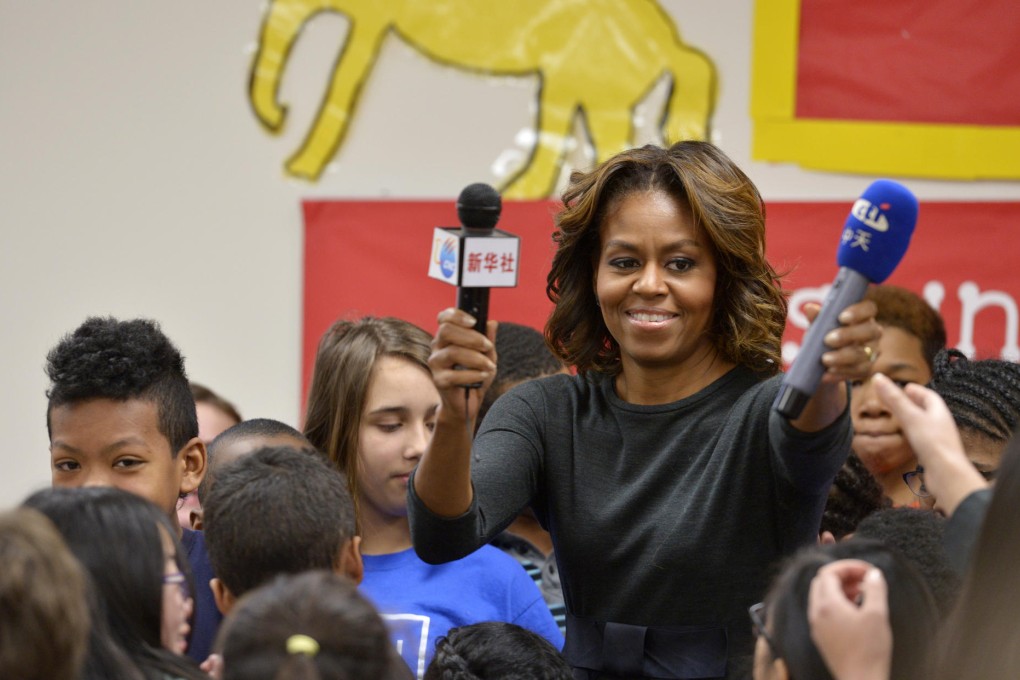Michelle Obama expected to stay away from politics on China visit
Michelle Obama expected to maintain her policy of retaining a focus on positive issues, which could spell good news for her hosts

When Laura Bush ventured to the Thailand-Myanmar border six years ago, the first lady accused China of not doing enough to pressure the brutal Myanmar regime. When Hillary Rodham Clinton visited Beijing in 1995, she delivered a blunt assessment of China's human rights record.
But as Michelle Obama prepares to journey to China next week with her mother and daughters, she does not plan to deliver a similar performance.
Obama's decision to focus on educating young people - a consistent theme in her rare solo foreign trips - reflects a broader decision to steer clear of political controversies, even after her husband has run his last campaign.
It reflects a strategy she adopted early in her husband's tenure, which was to develop long-term campaigns around specific issues such as obesity, youth empowerment and education, rather than using her position as a bully pulpit.
She never wants to show up somewhere and just make a speech
"This was her decision - not a political one, in the sense that she decided to play it safe," a former senior US administration official wrote in an e-mail. "She never wants to show up somewhere and just make a speech."